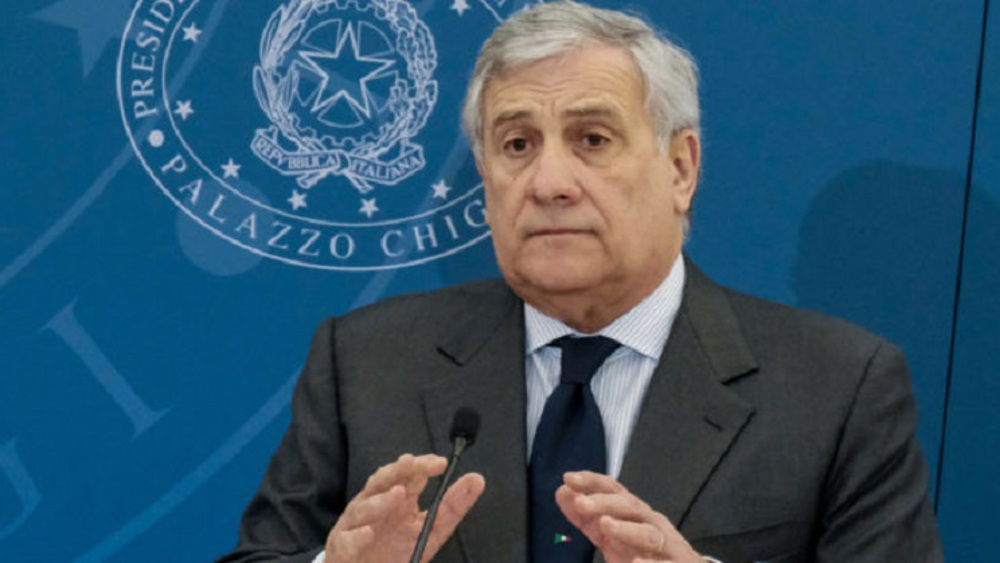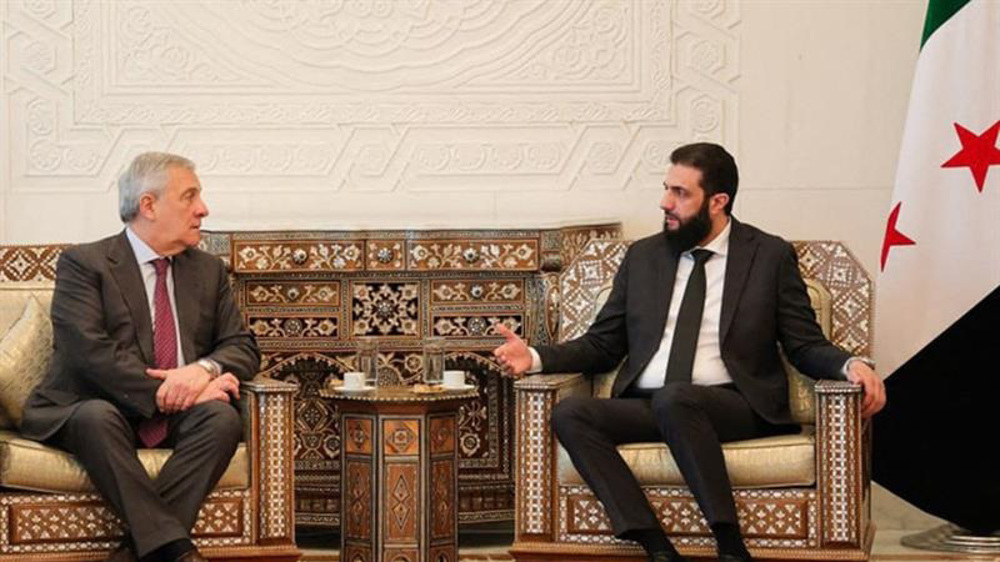EU vows action over Macedonia crisis
The European Union says it could consider putting sanctions on Macedonian politicians who obstruct a resolution of the Balkan country's long-running political crisis.
EU Commissioner for European Neighborhood Policy and Enlargement Negotiations, Johannes Hahn, and three members of the European Parliament said in a joint statement on Thursday that they were now forced to consider unspecified "further actions".
"We deeply regret retrograde steps that move the country further away from its aspirations towards European Union accession. In the absence of any further progress, we are now forced to consider further actions to meet the requirements clearly laid out by the (European Union)," the statement read.
Meanwhile, an EU official told Reuters on condition of anonymity that the 28-nation bloc could consider putting sanctions, such as travel bans and asset freezes, on Macedonian politicians who obstruct a resolution of the country's long-running political crisis.
This came after an EU spokeswoman Maja Kocijancic said it had invited the Macedonian parties for negotiations in Vienna on Friday. However, the official said the main opposition party declined to take part. "We regret that the leaders' meeting planned in Vienna on April 22 could not take place.”
"We have consistently said that the breakdown of the Przino Agreement would have serious consequences for the country,” Kocijancic added, referring to an accord among Macedonian political leaders reached under EU auspices last year.
"We would deeply regret any retrograde steps in Skopje that would move the country further away from its aspirations towards European Union accession," she noted
The main opposition party Social Democratic Union of Macedonia said their preconditions for attending the EU talks were not met by the government. They insisted on revoking an amnesty for politicians in a wiretapping scandal and postponing the June 5 snap elections.
Macedonia has been the scene of protests since last week when President Gjorge Ivanov granted pardons to 56 officials, accused of ordering thousands of illegal wiretaps.
The demonstrations began on April 12 after President Gjorge Ivanov pardoned dozens of corrupt politicians. The move also sparked international condemnation with the EU warning that the act may negatively affect Macedonia’s chance to join the bloc.

Disbanding the parliament and announcing snap elections have failed to pacify the demonstrators.
Macedonia has been caught in political crisis since the country’s election results came out in April 2014.
Opposition leader Zoran Zaev accuses the government of electoral fraud and refuses to recognize the results of last year's election.
In addition, the opposition accuses Gruevski's government of abusing the justice system and media in addition to wiretapping some 20,000 people, including politicians and journalists.
Furthermore, the opposition accuses the government of a murder cover-up and other wrongdoings.
The political crisis was accompanied by violent demonstrations between rival camps which prompted foreign diplomats to call on the main political parties to meet and resolve the crisis.
The country's political crisis is further aggravated by violence caused by ethnic Albanian militants.
Last year, clashes between police and an armed group of ethnic Albanian militants in Kumanovo city, located some 40 kilometers (25 miles) northeast of the capital, Skopje, left eighteen people dead, including eight police officers.
Both the government and the opposition accused one another of scheming to destabilize the country in order to take or keep power. Ethnic Albanians make up 25 percent of the country’s two million population.
Macedonia is a candidate for EU membership since 2005, but is yet to open accession talks.
And finally, Macedonia’s name and its accession to the EU has been denied due to Greece’s objection on this matter. Athens claims it has historical right to the name Macedonia.
Hamas thanks Iran, Resistance Front following achievement of ceasefire in Gaza
'Capitulation': Israeli officials and media concede Gaza defeat as truce unfolds
'Gaza has won': Social media users react to ceasefire with mix of relief, joy
Iran seeks South Korea’s assistance for AI, fiber-optic projects
VIDEO | Iran's 'Eqtedar' (Power) maneuver
Israel hits HTS military target in Syria for 1st time since fall of Assad
VIDEO | Press TV's news headlines
Israel has slaughtered 13,000 students in Gaza, West Bank















 This makes it easy to access the Press TV website
This makes it easy to access the Press TV website